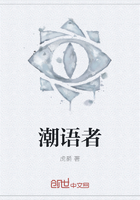He entered then,greeted the audience with that smile which the great instinctively bestow upon the people,and slowly directed his steps towards his chair of scarlet velvet,his mind obviously preoccupied by some very different matter.His train,or what we should now call his staff,of bishops and abbots,streamed after him on to the platform,greatly increasing the disturbance and the curiosity down among the spectators.Each one was anxious to point them out or name them,to show that he knew at least one of them;some pointing to the Bishop of Marseilles—Alaudet,if I remember right—some to the Dean of Saint-Denis,others again to Robert de Lespinasse,Abbot of Saint-Germain-des-Près,the dissolute brother of a mistress of Louis XI,all with much ribald laughter and scurrilous jesting.
As for the scholars,they swore like troopers.This was their own especial day,their Feast of Fools,their Saturnalia,the annual orgy of the Basoche1 and the University—no turpitude,no foulness of language but was right and proper to that day.Besides,there was many a madcap light o'love down in the crowd to spur them on—Simone Quatrelivres,Agnés la Gadine,Robine Pièdebou.It was the least that could be expected,that they should be allowed to curse at their ease and blaspheme a little on so joyful an occasion and in such good company—churchmen and courtesans.Nor did they hesitate to take full advantage thereof,and into the midst of the all-prevailing hubbub there poured an appalling torrent of blasphemies and enormities of every deion from these clerks and scholars,tongue-tied all the rest of the year through fear of the branding-iron of Saint-Louis.Poor Saint-Louis,they were snapping their fingers at him in his own Palais de Justice.Each one of them had singled out among the new arrivals some cassock—black or gray,white or violet—Joannes Frollo de Molendino,as brother to an archdeacon,having audaciously assailed the red robe,fixing his bold eyes on the Cardinal and yelling at the pitch of his voice,'Cappa repleta mero!'Oh,cassock full of wine!
But all these details which we thus lay bare for the edification of the reader were so overborne by the general clamour that they failed altogether to reach the reserved platform.In any case the Cardinal would have taken but little heed of them,such license being entirely in keeping with the manners of the day.Besides,his mind was full of something else,as was evident by his preoccupied air;a cause of concern which followed close upon his heels and entered almost at the time with him on to the platform.This was the Flemish Embassy.
Not that he was a profound politician and thus concerned for the possible consequences of the marriage between his one cousin,Madame Marguerite of Burgundy,and his other cousin,the Dauphin Charles;little he cared how long the patched-up friendship between the Duke of Austria and the King of France would last,nor how the King of England would regard this slight offered to his daughter,and he drank freely each evening of the royal vintage of Chaillot,never dreaming that a few flagons of this same wine(somewhat revised and corrected,it is true),cordially presented to Edward IV by Louis XI,would serve one fine day to rid Louis XI of Edward IV.No,'the most honourable Embassy of Monsieur the Duke of Austria'brought none of these anxieties to the Cardinal's mind;the annoyance came from another quarter.In truth,it was no small hardship,as we have already hinted at the beginning of this book,that he,Charles of Bourbon,should be forced to offer a courteous welcome and entertainment to a squad of unknown burghers;he,the Cardinal,receive mere sheriffs;he,the Frenchman,a polished bon-viveur,and these beer-drinking Flemish boors—and all this in public too!Faith,it was one of the most irksome parts he had ever had to play at the good pleasure of the King.
However,he had studied that part so well,that when the usher announced in sonorous tones,'Messieurs,the Envoys of Monsieur the Duke of Austria,'he turned towards the door with the most courteous grace in the world.Needless to say,every head in the Hall turned in the same direction.
Thereupon there entered,walking two and two,and with a gravity of demeanour which contrasted strongly with the flippant manner of the Cardinal's ecclesiastical following,the forty-eight ambassadors of Maximilian of Austria,led by the Reverend Father in God,Jehan,Abbot of Saint-Bertin,Chancellor of the Golden Fleece,and Jacques de Goy,Sieur Dauby,baillie of Ghent.Deep silence fell upon the assemblage,only broken by suppressed titters at the uncouth names and bourgeois qualifications which each of these persons transmitted with imperturbable gravity to the usher,who proceeded to hurl name and title unrecognisably mixed and mutilated,at the crowd below.There was Master Loys Roelof,Sheriff of the City of Louvain;Messire Clays d'Etuelde,Sheriff of Brussels;Messire Paul de Baeust,Sieur of Voirmizelle,President of Flanders;Master Jehan Coleghens,Burgomaster of the City of Antwerp;Master George de la Moere,High Sheriff of the Court of Law of the City of Ghent;Master Gheldolf van der Hage,High Sheriff to the Parchons,or Succession Offices of the same city;and the Sieur de Bierbecque,and Jehan Pinnock,and Jehan Dymaerzelle,and so on and so on;baillies,sheriffs,burgomasters;burgomasters,sheriffs,baillies;wooden,formal figures,stiff with velvet and damask,their heads covered by birettas of black velvet with great tassels of gold thread of Cyprus—good Flemish heads,nevertheless,dignified and sober faces,akin to those which stand out so strong and earnest from the dark background of Rembrandt's'Night Round';faces which all bore witness to the perspicacity of Maximilian of Austria in confiding'to the full,'as his manifesto ran,'in their good sense,valour,experience,loyalty,and high principles.'














